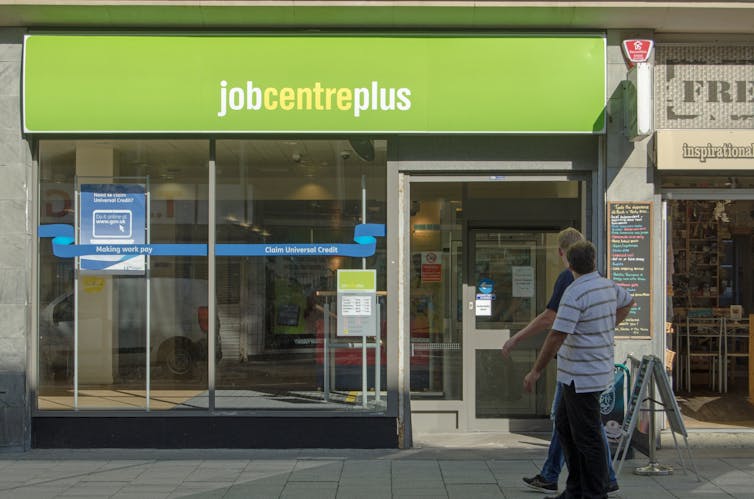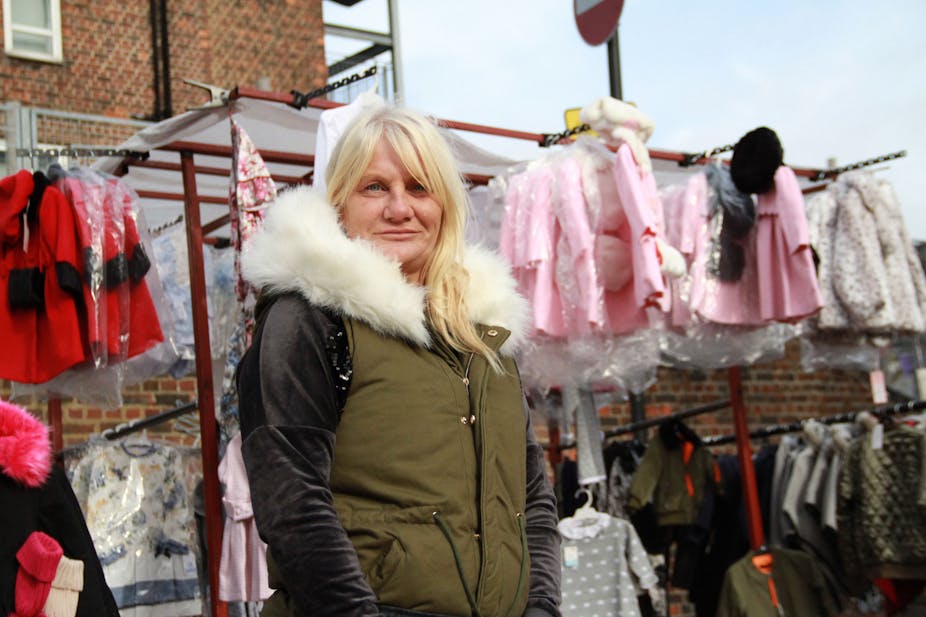The lack of a real economic recovery and austerity since the 2008 financial crisis continues to make life difficult for ordinary people. It’s part of the reason that public attitudes toward benefit recipients is increasingly intolerant. And this hardening of the public mood is, in turn, spurred on by an increasingly hysterical, benefits-bashing and divisive tabloid press.
This is illustrated in much of the reaction to a recent Channel 5 documentary series, “The Great British Benefits Handout”. The TV series conducts a social experiment on the long-term unemployed. It gives families a cash lump sum of £26,000 – the equivalent of a year’s worth of benefits in one go – in return for them permanently “signing off” the benefits system. They are then free to spend the money how they please, but the idea behind the show is that it gives them an opportunity to transform their lives, with most choosing to invest the money in business ventures.
The result, without exception, has been positive. Specifically, an immediate short-term escape from the poverty trap for all the families featured, into a long-term strategy of entrepreneurship and small business ownership.
The series shows families with no prior business experience set up and successfully run small firms. One family, for example, set up a secondhand goods business, Tidy and Sons, with their £26,000. The founders said it hadn’t “been easy setting up our own business”. And it certainly isn’t an easy option – four in ten new businesses will fail within five years.

But setting up these businesses with the money, plus the budgeting support and help of the show’s financial adviser Lee Healey, lifted them out of the poverty trap. We see the successful party planning business (with exotic animals); the market stall owner now understanding profit and costs, and subsequently making a good living wage; the burger van business; and the tanning salon. All progressing their new ventures, all ambitious and hard working – determined to make a success for themselves and their families.
Beyond the sensationalism
Yet the programme attracted criticism. It was called exploitative “poverty porn” and the enterprising participants attracted a special type of negative rhetoric from the tabloids. They were demonised and mocked in headlines: “DISGUST as unemployed blow £26K on BOTOX and LOBSTER” and “SHE’S BLOWN IT Mum splashes out £6,000 on meals, clothes and perfume”.
Ah yes, the feckless and wasteful poor, with their untidy houses, nicotine habits and wrinkled, undeserving faces – that’s how benefits recipients in the UK are generally portrayed. Interestingly, many of the headlines also focused on the family status of the female participants – adding a further moral element to their criticism: “Single mother-of-three”, “Nan-of-12”, “Benefits mother-of-four splashes out”.
However, look past the sensationalist headlines, and a different story emerges: the market traders and service providers using the money to set up new businesses for themselves. The £6,000 “blown on rubbish” was partly used to clear that most insidious and corrosive block to escaping the poverty trap: debt.

The £26,000 “on botox” was in reality just over £1,000 for a woman who had experienced an exceptionally hard life. This (to her) gave her a new-found confidence in her looks. Necessary perhaps for getting out onto a market stall and selling your goods directly to a passing public. Plus, she hadn’t spent almost the entire £26,000 “in just THREE MONTHS”, as the headline shouted. The small print of the article showed that not only was £8,000 left, much of the money remained in £6,500 invested in stock for her new start-up.
An important economic role
The contrast between reaction to The Great British Benefits Hand Out and more obviously entrepreneurial programmes like The Apprentice and Dragons’ Den couldn’t be more pronounced. The participants here are not categorised as entrepreneurs receiving an investment or grant with which to start a business. And in the real world – without the help of this social experiment and the expertise of Healey – it wouldn’t happen.
Conventional ways of raising the capital to start a business – government grants, loans, crowdfunding, venture capitalists and business angels, are generally not an option for these small businesses. Yet these are the lifeblood of the economy. The tanning salons, party planners, hairdressers and removal vans – they aren’t high tech, they aren’t likely to internationalise and grow, but the economy depends on these small hardworking, bread-and-butter businesses.
Unfortunately, the collective view of what is considered entrepreneurship is largely shaped by the Steve Jobs and Richard Bransons of the world. But more government schemes should support small-scale would-be entrepreneurs – also having a massive long-term impact on the lives of benefit recipients. In the main, people want to work, and they want to live good and productive lives, when given half a chance.
These would-be entrepreneurs do not deserve to be vilified, judged and mocked by an outraged public as feckless spongers. On the contrary, they deserve our admiration, support – and most importantly, a collective and social kindness towards people who are just doing their best.

